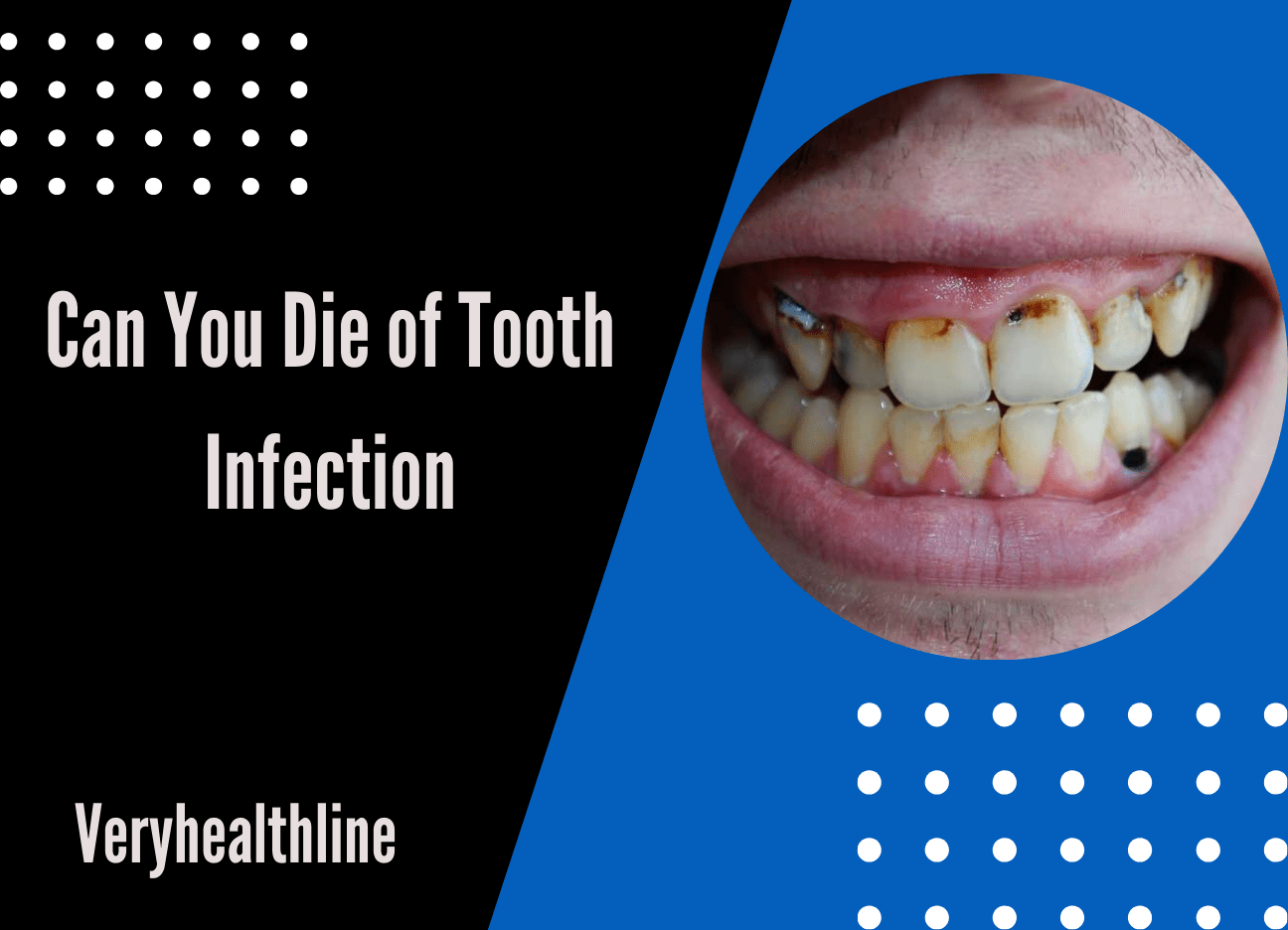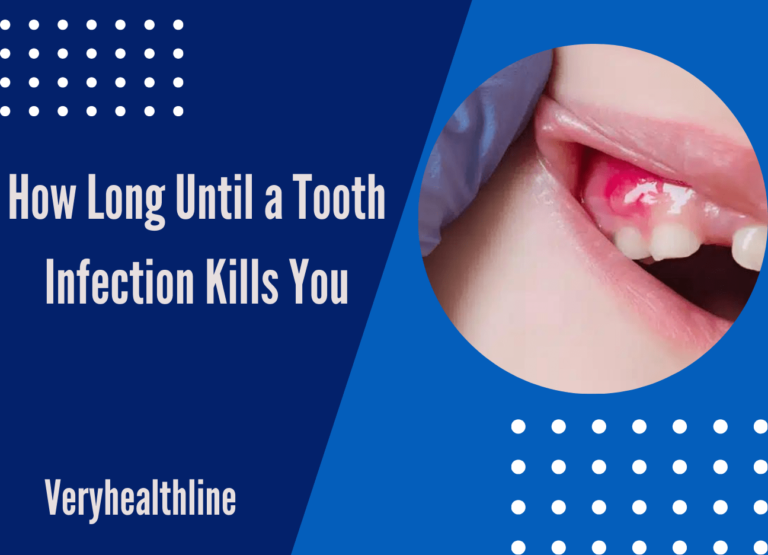Can You Die of Tooth Infection: How It Could Lead to Death

Introduction
A tooth infection can be much more dangerous than most people realize. It often starts small, with bacteria from the mouth invading the soft tissues and pulp inside the tooth, forming a pus-filled pocket known as a dental abscess.
If left untreated, this infection can get worse, causing life-threatening complications. While it may seem like something minor, the toothaches that accompany it, especially when the pain is throbbing, should not be ignored. The worst-case scenario? Yes, an infection can kill you.
Many people experience a toothache and look for relief using home remedies, sometimes considering the unthinkable – pulling the offending tooth with whatever they have at hand, like pliers. While this might seem like a quick fix, especially in moments of desperation, it’s far from safe.
Can you actually die from pulling an infected tooth yourself? It’s a legitimate question with an intricate response. Tooth infections can spread deeper, making things far worse than a simple extraction would solve.
In this blog, we will explore the risks of DIY tooth extraction, the complications that can arise, and the signs that an infection is spreading. If you notice any of these symptoms, it’s crucial to seek professional help immediately.
Why You Shouldn’t Ignore Tooth Infections
You may have clicked on this blog because you’re dealing with some tooth pain or an infection, and you’re understandably stressed or even frightened about the possibilities. Take a deep breath—it’s going to be okay. But let’s get to the facts: you’re wondering how long a tooth infection can go untreated before it kills. The truth is, it’s hard to pinpoint, but complications from untreated infections are real, and they can happen faster than you think.
The good news is that most tooth infections are harmless as long as they are treated early. But when ignored, the risks grow, and the infection can spread to other parts of your body, causing severe damage. Once you notice signs of a tooth infection, it’s critical to act and treat it promptly to avoid these risks.
How Can A Tooth Infection Kill You?
An infected tooth can seem minor, but if left untreated for a long time, the infection can spread throughout the body. It may travel to the brain, neck, jaw, and even the heart, leading to serious health complications and possible death.
A dental abscess may take months to develop, with symptoms like pain and swelling, but the risk of infection spreading is high if it remains untreated. In the 17th and 18th centuries, dental infections were among the top causes of death, but thanks to medical advancements, this is now rare if you seek treatment early.
The bacteria from an infection can affect the soft tissue, nerve, and surrounding areas, especially if there’s tooth decay or injury.
While antibiotics can help, delaying treatment can be deadly as the bacteria may continue to spread through the body. Keeping up with good oral hygiene and addressing any signs of infection early can prevent these dangerous complications.

How Long Until a Tooth Infection Kills You?
A tooth abscess can take months to develop, often starting from tooth decay or a tooth injury. If left untreated, the infection may become persistent and lead to severe toothaches.
The infection can spread rapidly, sometimes in a matter of weeks, causing serious complications. In the worst cases, death can occur within just a few days once the infection reaches critical areas of the body.
While a dental abscess may take time to form, once it’s established, it can spread quicker than many realize. This is why it’s essential to address any signs of infection early to avoid potentially fatal outcomes.
Also Read: How Long until a Tooth Infection Kills You: Find Out Now!
What happens if you pull a tooth while infected?
Pulling an infected tooth might seem like a quick way to get rid of the pain, but it can actually lead to serious dangers. A healthy tooth has a hard outer shell called enamel that protects the soft inner core, including the pulp, nerves, and blood vessels. When a tooth becomes infected, bacteria invade these sensitive areas, causing it to become inflamed and painful.
By pulling the infected tooth, you create an open wound in your mouth, which can become a gateway for bacteria to enter your bloodstream. This could lead to even more serious complications as the infection spreads through your body.
While removing the tooth may relieve the toothache temporarily, it’s important to remember that it won’t stop the bacteria from continuing to cause harm.
What are the symptoms of a tooth infection spreading to the brain?
When a tooth infection starts spreading to the brain, it becomes a life-threatening condition known as a brain abscess. Recognizing the warning signs early is crucial to preventing severe outcomes. Common symptoms include a persistent headache, fever, and chills. More serious signs may involve confusion, disorientation, and even seizures.
In some cases, people may experience difficulty speaking, weakness, or paralysis on one side of the body, along with the loss of consciousness. If these symptoms appear, it is important to seek immediate medical attention to avoid potentially fatal consequences.
What Complications Does A Tooth Infection Cause That Can Kill You?
An untreated tooth infection can lead to serious health complications that may become life-threatening if not addressed quickly. The infection can cause issues that spread beyond the tooth, potentially affecting other parts of the body.
- Sepsis: A tooth infection can make the body react in an extreme manner, causing sepsis. This life-threatening condition happens when the infection spreads, damaging tissues and affecting the functions of vital organs. If left untreated, it can lead to poor organ functions, causing severe problems and ultimately leading to death.
- Brain Abscess: A brain abscess is a serious condition where a pus-filled pocket develops in the brain as a consequence of a tooth infection. The bacteria and infected material cause swelling and increase pressure, which can stop blood flow. This can ultimately kill you if not treated immediately.
- Ludwig’s Angina: Tooth infections or abscesses can spread to the soft tissues under the tongue, leading to a condition called Ludwig’s Angina. This bacterial infection affects the jaw, mouth, and neck, causing swelling and difficulty breathing. If left untreated, it can become life-threatening.
- Endocarditis: A tooth infection can spread to your heart, leading to endocarditis, a severe condition. This happens when the infection causes inflammation in the heart’s inner lining, which can ultimately kill you if not treated promptly.
- Necrotizing fasciitis: Necrotizing fasciitis is a quick-spreading infection that can result from a tooth infection. This flesh-eating disease causes tissue death in the body and can lead to death in a short period if left untreated.
What are the symptoms of a tooth infection spreading to the body?
If a tooth infection is spreading beyond the mouth, it can travel through the bloodstream and infect different parts of the body. Common symptoms include fever, chills, and fatigue, along with swollen lymph nodes. More severe signs may include a rapid heartbeat, shortness of breath, and difficulty speaking.
These could be signs of heart infection. In some cases, vision problems or trouble with speech may indicate the infection is affecting the brain.
This is why it’s crucial to recognize these symptoms early and seek medical help.
How to Notice a Tooth Infection
The good news is that you usually have months to notice the signs of a tooth infection before it becomes severe. Common symptoms at the beginning of a dental infection include red, swollen gums, throbbing pain, and a bad taste in your mouth. You may also experience bad breath, discoloration of the affected tooth, and pressure-sensitive or temperature-sensitive teeth.
If these symptoms worsen and you develop a fever, swollen lymph nodes, or feel malaise, it could be a severe infection. This can also lead to swelling around your face, eyes, or neck, along with nausea, vomiting, and difficulty breathing.
If you have trouble opening your mouth, speaking, chewing, or swallowing, or have a persistent headache, seek emergency care immediately. A visit to the dentist for proper treatment can prevent the infection from becoming life-threatening.
What Are The Risk Factors That Cause Complications?
Certain risk factors can increase the likelihood of serious complications from a tooth infection. People with diabetes or who suffer from malnourishment are at higher risk, as their bodies may struggle to fight off infections.
If you are immunocompromised or have an impaired immune system, your body’s defense mechanisms are weakened, making it harder to manage a tooth infection. Additionally, being of older age can further elevate the risk of complications.
These factors can make a tooth infection more dangerous, leading to severe health problems if not treated in time. It is essential for individuals with these conditions to take extra precautions and seek prompt dental care to prevent complications.
Conclusion
A tooth infection can lead to severe complications that may even kill if not addressed in time. It’s crucial to notice the early signs and seek the required treatments before the situation worsens.
Ignoring a dental issue can turn a manageable problem into a life-threatening condition. Always take a tooth infection seriously and visit a dentist promptly to prevent dangerous outcomes.
FAQS
How long can you live with a tooth infection?
An untreated tooth infection can take weeks or months to spread to surrounding tissues. Complications and death can occur quickly, especially in older individuals or those with diabetes or who are immunocompromised.
How do I know if my tooth infection is life threatening?
A tooth infection can be serious if symptoms like swelling in the face, jaw, or neck occur. If you experience trouble breathing, swallowing, or fever, this might indicate that the infection is spreading through your body. Seek immediate care from a dentist or go to the emergency room if these symptoms arise. The infection’s spread can cause severe trouble; don’t delay treatment.
What happens if tooth infection is left untreated?
If a tooth infection goes untreated, it can create an abscess and spread to surrounding tissues. Over weeks or months, this may cause swelling in the face, jaw, and neck. Symptoms like trouble breathing and swallowing could arise, leading to severe overall health issues. The infection can wreak havoc on your oral and body health, making it impossible to ignore.



